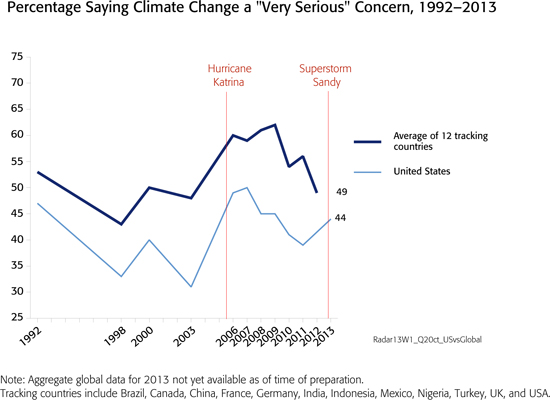Leonardo
DiCaprio, a UN messenger of Peace on climate change, addressed the leaders of
today at the Paris Agreement in December 2015 in his recent documentary stating "The world is
now watching, you will either be lauded by future generations or vilified by
them. You are the last, best, hope of Earth. We ask you to protect it, or we
and all living things we cherish, are history." In the documentary he
questioned whether they will change our course to one of greater sustainability, but most of all, whether it will be in time. Twenty years
ago, this sense of urgency was not present. So what has changed?
 |
| Climate protests have been gaining momentum over the past 2 years with the Global Climate March in December 2015 being the largest environmental movement in history with approximately 785 000 protesters in 175+ countries taking part in the event. In Paris, protesters were banned from marching and left 20 000 pairs of shoes in the street, demonstrating their participation. |
The variation in the public's perception of climate change over the last three decades is summarised in the graph below. A particularly good study published in 2014 followed the trends in public opinion and discussed possible reasons for the changes, however, it failed to address the current global pro-climate action trend. Strangely, few papers have been produced since 2011 and therefore little has been concluded about the causes of the current pro-climate action trend across the globe. Looking back at previous influencing factors however, one may settle on the most significant factors to perception as being occurrence of natural disasters, media coverage, an individual’s socio-economic attributes, partisian affiliation and emotion. In my opinion, a correlation is present where four or more of these factors have associated positively (and simultaneously) with a peak in climate activism. Given the current presence of these factors, we are witnessing a positive movement towards sustainability. What makes this movement different from the past however, is the scale of each of these factors.
The plethora of extreme events occurring
simultaneously across the globe since 2015 has hit the concept of climate
change home. We have seen the biggest voluntary political commitments
publicised widely over social media platforms, influencing masses of people and
igniting a great emotional response, calling for a sense of urgency.
|
Far greater reaching however, has been the liberation of consumers to feel that they can make a change. Over the past three decades people have gained their voices through equality. Women, poor and minorities now have greater choice and opportunity. Just in 2016 we have seen "one of the defining moments in the recent history of protests against fossil fuel infrastructure" as thousands stood with the Native Americans to fight against the Dakota Access pipeline resulting last weekend in threats of funding withdrawal alongside a statement by the former US president Barak Obama stating that reviews to reroute the pipeline were underway. Meanwhile in Kenya, 30 community organisations have halted the development of a coal plant in the environmentally sensitive area of Lamu. Both movements running on social media platforms as #NoDAPL and #SaveLamu respectively, the successes from which are well summarised here. Other examples of major shifts caused by individual participation have been the ban on fracking in Northern Ireland (#BackTheBill) and Walmart's shift in organic food products and producers.
 |
| After months of protests, oil giants who risk polluting precious fresh water sources and disturbing sacred lands are on the defence. |
So whilst Emission Gap and International Oil reports show that we are not currently set to meet our global target of staying below a 2 degree Celsius warming and with the US election results favouring a climate skeptic, I am trying to remain positive. Our old barriers are now factors in our passage towards sustainability and now is the time for us to feel powerful enough to make a change. In the face of the American threats to pull out of the Paris Agreement, it is collective change in our behaviours and perceptions that we need to bank on to bridge the gap, fight climate change and fight for our future.


If you would like to see what small things you can do daily to make a difference have a look here. A little can go a long way!


Great article Courtney! Its unimagineable what the power power in unified voices can accomplish. Activism has kept governments and huge cooperations on check. However its also important to note that some activists groups/organizations are in it to 'shout' attract 'donor funds' without proper engagements. Nonetheless, we have, and will continue to witness a lot of positive environmental change because activism shakes the grounds upon which exploiters stand.
ReplyDeleteThanks Asha! I absolutely agree on the effect of activism when conducted in the right way and for the right reasons! Unfortunately as you said, some activist groups have selfish intentions but, this happens in so many different groups that in general I think its a good practice to research any awareness and fundraising groups before supporting them. I was thrilled to hear about the #SaveLamu campaign in Kenya - glad to see more of Africa giving real thought to sustainability! What are your thoughts on the causes of the popularity and success of recent climate change movements?
Delete